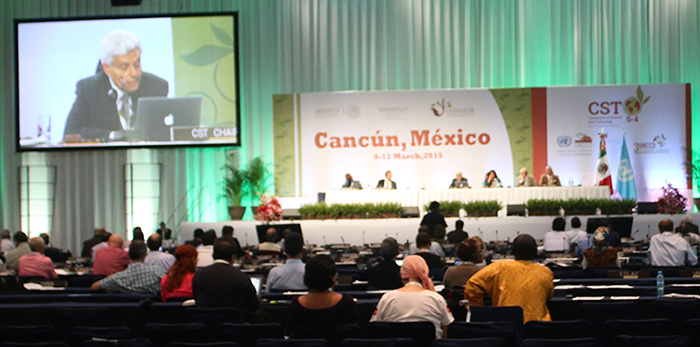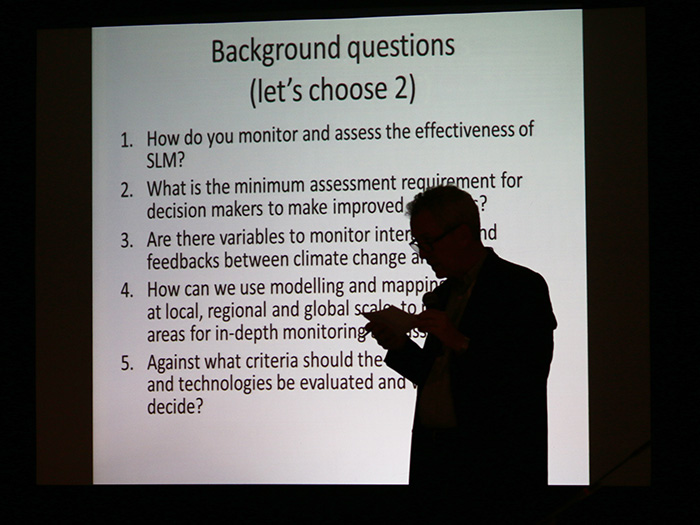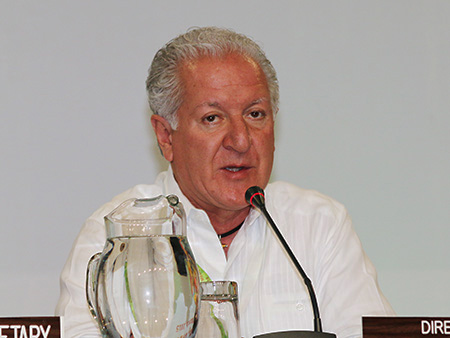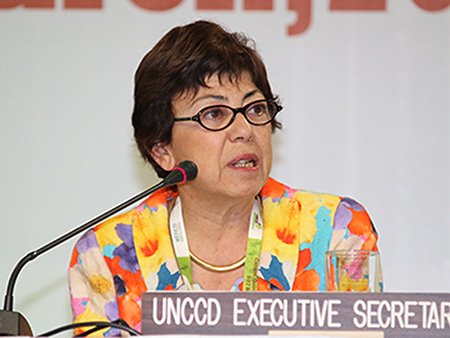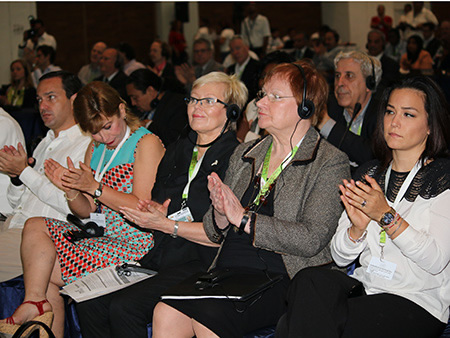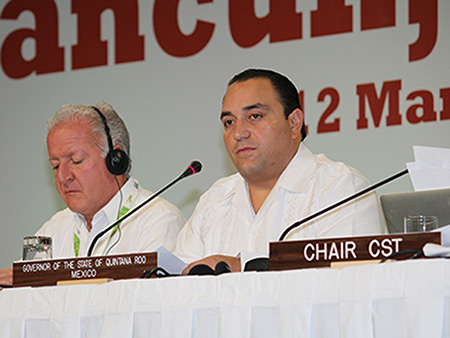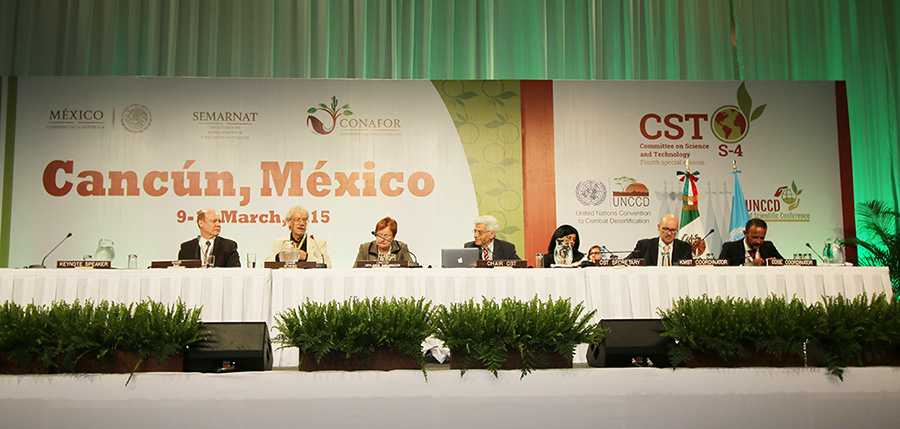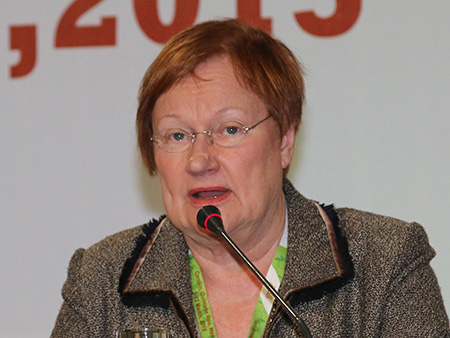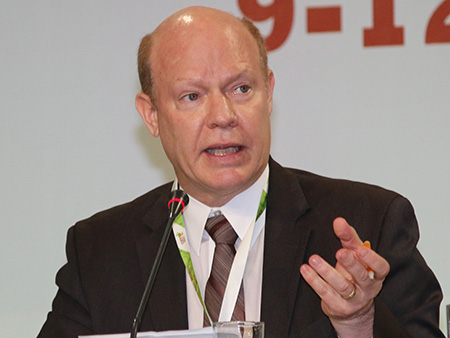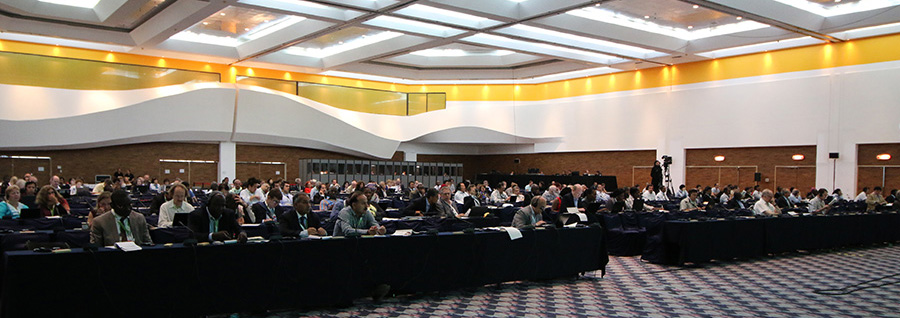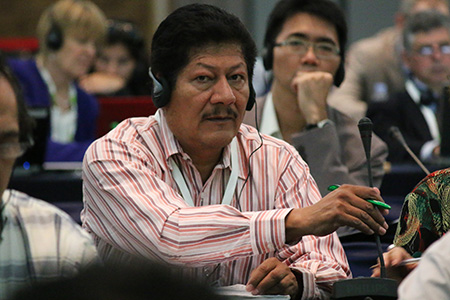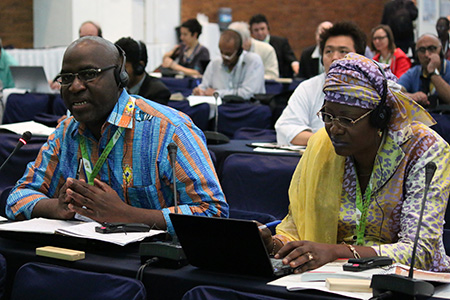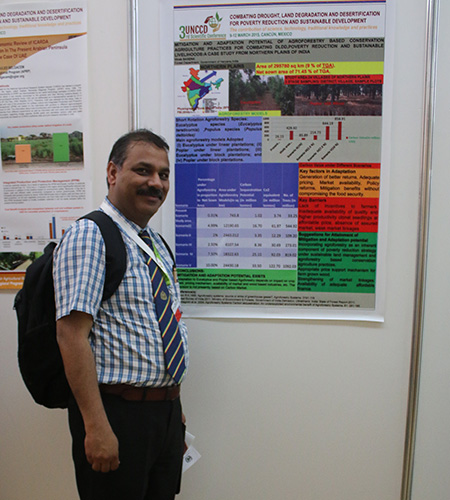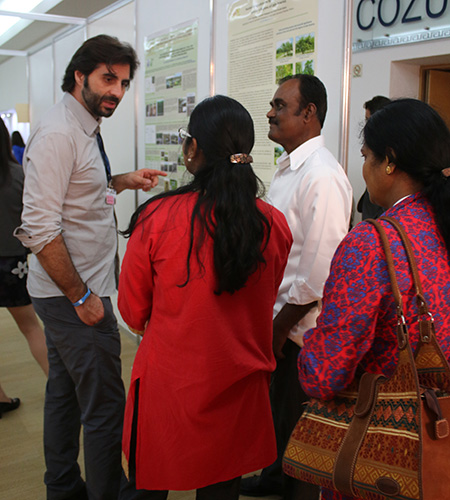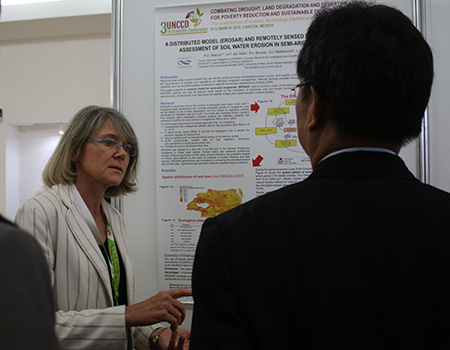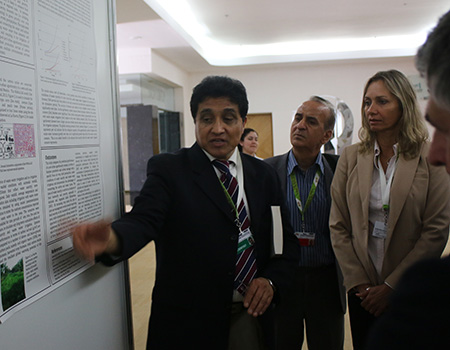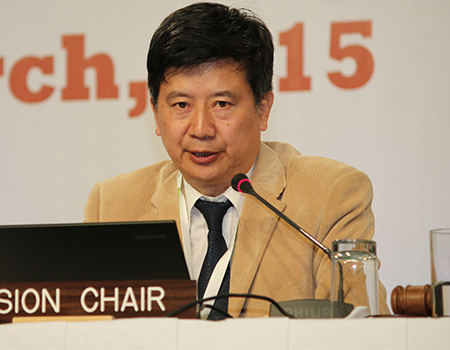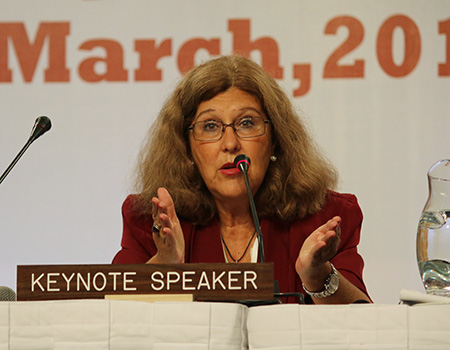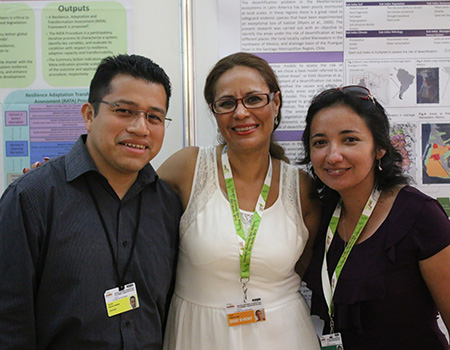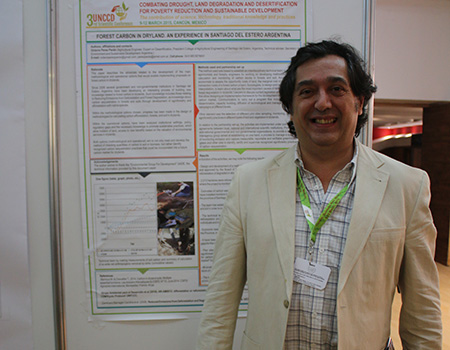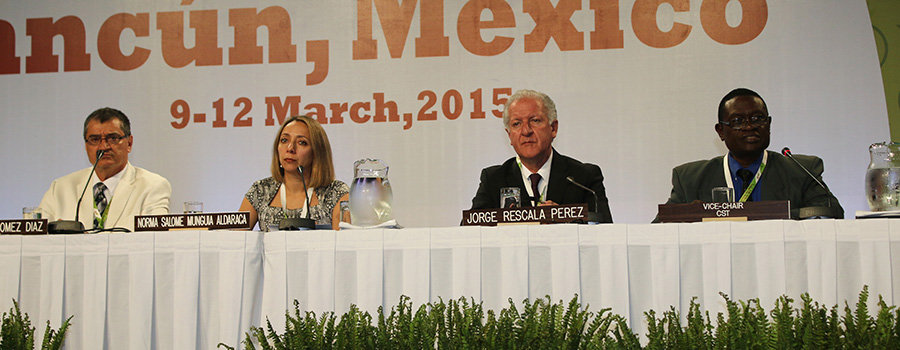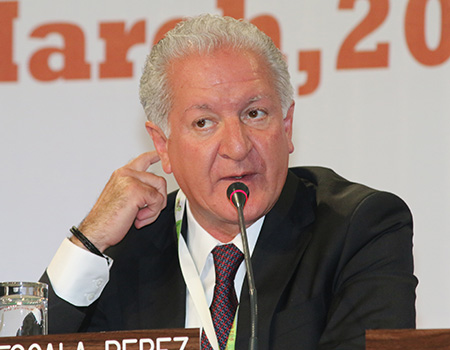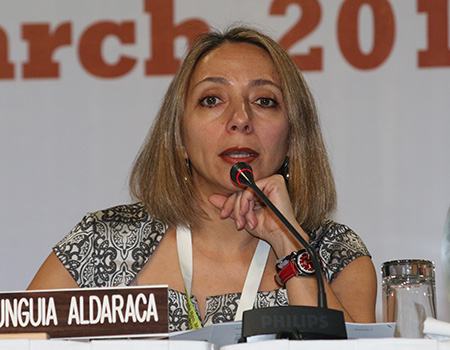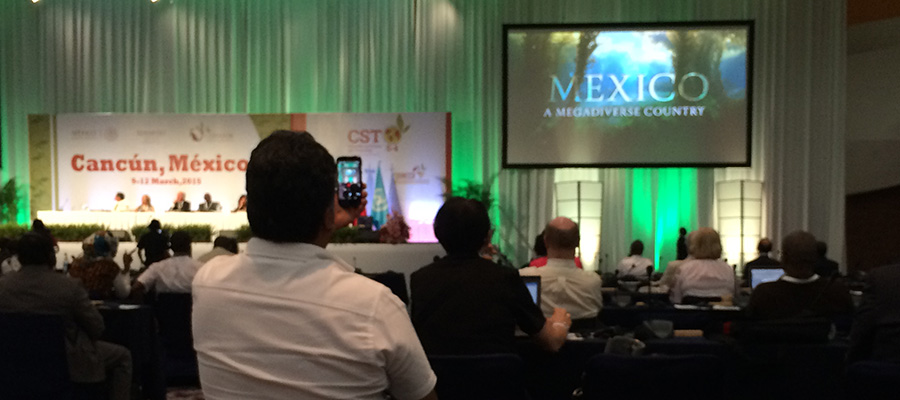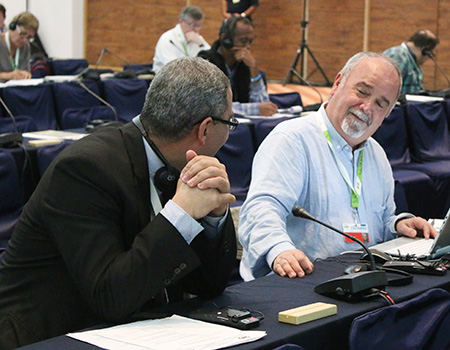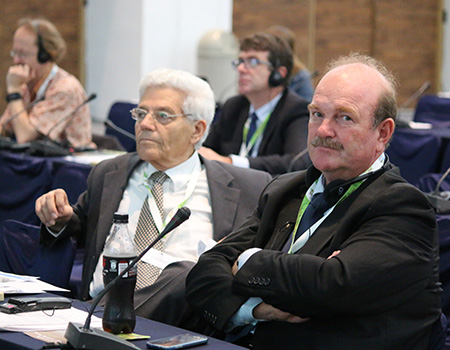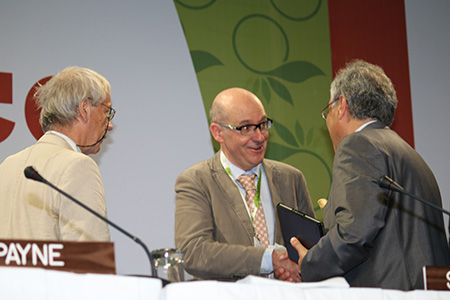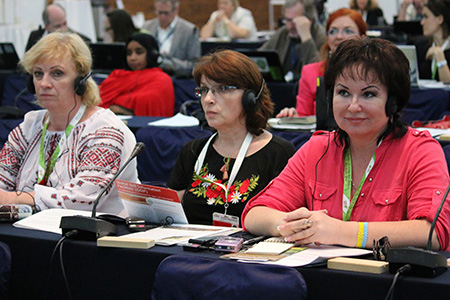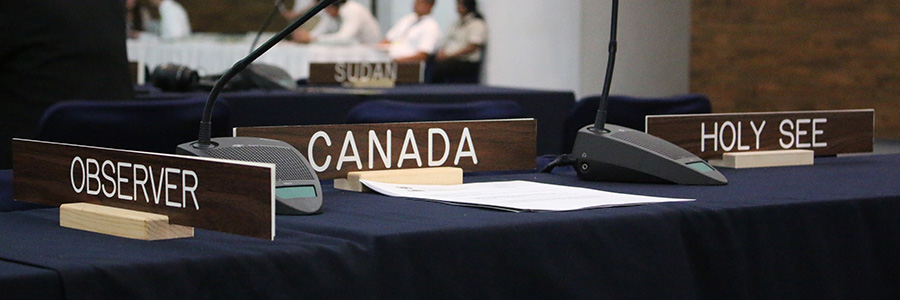Fourth Special Session of the Committee on Science and Technology (CST S-4) and
UNCCD 3rd Scientific Conference
9-12 March 2015 | Cancún, Mexico
Summary of the Conference
ENB Meeting Coverage |
||||
|
Receive our ENB bulletins and reports by email:
| Follow @IISDRS | ||

Loading... |
||
|
Receive emailed updates with the news articles above plus related information and announcements from our LAND-L community mailing list: |
||
Highlights for Monday, 9 March 2015
On Monday morning, 9 March 2015, Chair Uriel Safriel (Israel) opened the fourth special session of the Committee on Science and Technology (CST S-4) of the UN Convention to Combat Desertification (UNCCD), noting that combining a scientific conference with a meeting of policy-making country representatives is unique to the UNCCD process, and expressing high expectations for the forthcoming recommendations. Three opening speakers – Roberto Borge Angulo, Governor of the State of Quintana Roo, Jorge Rescala Perez, General Director of the Mexican National Forestry Commission, and UNCCD Executive Secretary Monique Barbut – welcomed participants and drew attention to some of the challenges presented by desertification, land degradation and drought. They highlighted that 5 million people are affected annually by drought, food demand is expected to increase by 60% by 2050, 75% of poorest people live in rural areas and are fully dependent on land, 2.5 billion people live on small farms and depend entirely on agriculture for survival, and 12 million hectares of land are lost annually due to land degradation, compounded by a 2% decline in agriculture as a result of climate change. Following a short break, participants reconvened as the UNCCD 3rd Scientific Conference. The Conference is convening from 9-12 March, and focusing on the theme, “Combating desertification/land degradation and drought for poverty reduction and sustainable development: the contribution of science, technology, traditional knowledge and practices.” On the first day of the Scientific Conference, participants engaged in its theme through keynote speeches, poster presentations and workshops on themes addressed in the research presented in the posters. Participants continued their discussions during an evening reception, hosted by the Government of Mexico. The Scientific Conference will continue from Tuesday to Thursday, following which the CST S-4 will reconvene to consider the outcomes from the four-day meeting in Cancun, Mexico. Visit the web coverage for Monday, 9 March 2015. |
||
|
|
|
|
|
Highlights for Tuesday, 10 March 2015
On Tuesday morning, 10 March 2015, Matthias Magunda, CST Bureau member and National Agricultural Research Institution, Uganda, opened the second day of the UNCCD 3rd Scientific Conference and chaired a session on responses to desertification and land degradation through land-based approaches to adaptation. Richard Thomas, Dryland Systems CGIAR Research Program Director, and the International Center for Agricultural Research in the Dry Areas (ICARDA), Jordan, delivered a keynote address on ways to enhance responses through collaboration. He noted that the main objective should be concentrated on reducing poverty and increasing food security through sustainable land management practices. He urged participants to adopt systems approaches that include comprehensive understanding, diagnosis and decision making in order to transition to research-for-development communities. Thomas emphasized that breakthroughs in science will not come from traditional scientists; they will come through interdisciplinary science. Visit the web coverage for Tuesday, 10 March 2015. |
||
|
|
|
|
|
|
|
Highlights for Wednesday, 11 March 2015
On Wednesday, 11 March 2015, the UNCCD 3rd Scientific Conference considered the topic of “Monitoring and Assessment: How to Evaluate the Effectiveness of Adaptation Interventions” during the morning. Tao Wang, Chinese Academy of Sciences, and SAC/SPI Member, chaired the discussion of this topic, which involved a keynote address by Elena Maria Abraham, Director, Argentine Dryland Research Institute (IADIZA), and five parallel workshops. Abraham said the objective is to assess the adaptive capacities and resilience of affected ecosystems. Stressing that no single tool, indicator or analytical model can reliably measure the complexity of links between climate change and land degradation, she noted the importance of integrating outcome-oriented methodologies with context-oriented methodologies through knowledge co-production processes. The workshops addressed: indicators; remote-sensing and mapping; drought, water, hydrology; sustainable land management/land degradation neutrality; and processes of degradation. Visit the web coverage for Wednesday, 11 March 2015. |
||
|
|
|
|
Highlights for Thursday, 12 March 2015
On 12 March 2015, the UNCCD 3rd Scientific Conference convened in the morning to hear keynote presentations on Mexico’s efforts to combat desertification and to consider conclusions from the Conference. Norma Salome Munguia Aldaraca, Director General, Primary Sector and Renewable Natural Resources, Secretaría de Medio Ambiente y Recursos Naturales (SEMARNAT), Jorge Rescala Perez, Director General, National Forestry Commission (CONAFOR) and Mexico’s UNCCD Focal Point, and Jesus David Gomez Diaz, Mexico’s UNCCD Science and Technology Correspondent, discussed Mexico’s national programmes to monitor and address desertification, land degradation and drought, among other activities. William Payne, SAC Chair, and Mariam Akhtar-Schuster, SAC/SPI, presented the final outcome of the UNCCD 3rd Scientific Conference, as contained in document ICCD/CST(S-4)/L.2. Payne noted that the Conference used a “novel, participatory approach” to explore links between biophysical and social systems, with an emphasis on vulnerability. Akhtar-Schuster highlighted policy recommendations, and informed participants that the outcomes would be transmitted to the 12th session of the CST and would be further synthesized by the SPI in a policy brief, which will be finalized in time for UNCCD COP 12 taking place from 12-23 October 2015, in Ankara, Turkey. Visit the web coverage for Thursday, 12 March 2015. |
||
|
|
|
|
|
|
|
|
|



